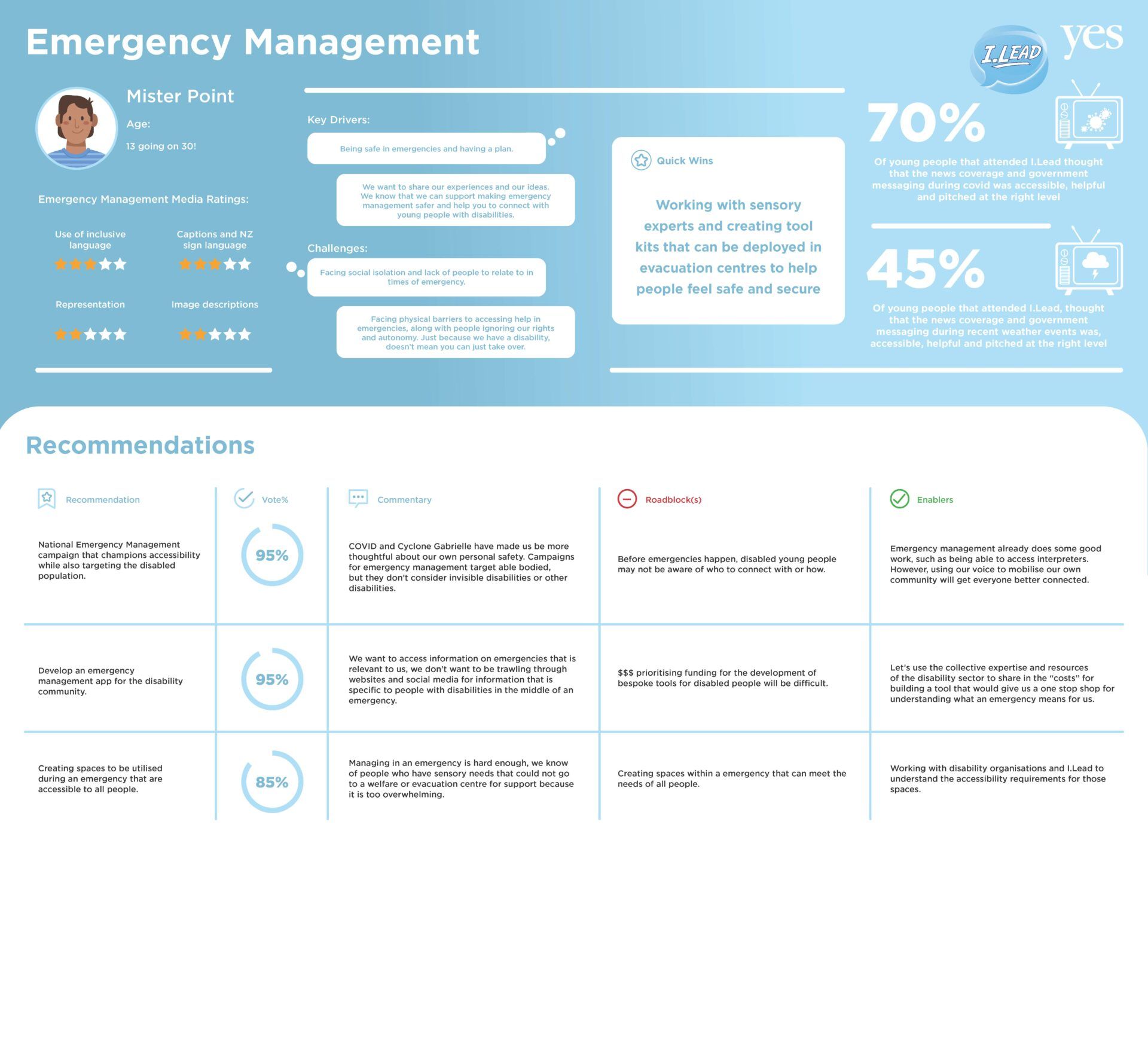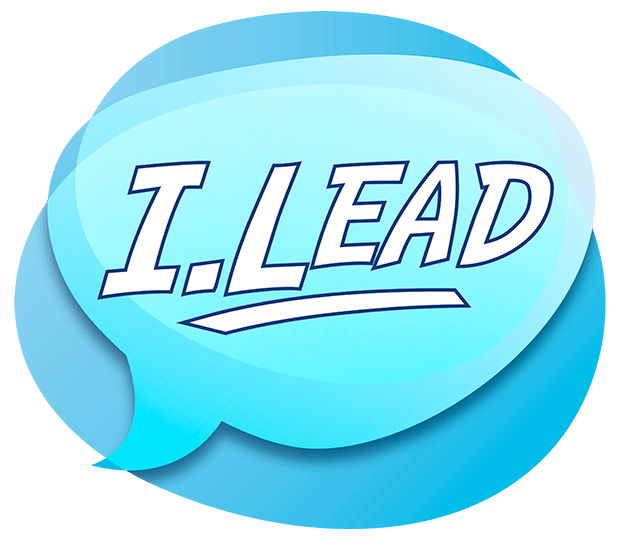The webinar begins with an I.Lead conference 2024 logo and underneath it says Report Card Webinar: Emergency Management, Abdulla shows up and begins speaking
Abdulla speaking:
“Kia ora everyone, my name is Abdulla and I am part of the I.Lead committee here in Auckland. I’ll be talking about the report cards that we developed at the I.Lead conference, one of the topics that we discussed is Emergency Crisis Management. From there we were able to create three recommendations from our young people, for the Emergency Management Crisis team.
So, the first recommendation is a national emergency management campaign which is specifically targeting disabled people and their families. This is critically important to all disabled people due to the current environment and the natural disasters that New Zealand has experienced over the last two years. A lot of the campaigns that are out there are for able-bodied people, and you don’t get much recognition in terms of disabilities which, as we all know this is important to notify and as well recognise. The different needs and different scenarios that people might be encountering during their time of need.
The second recommendation is an emergency management app, which is also notifying those that are disabled or have a disability to locate the accessible locations. As well to have access to information in an efficient way in that crisis.
The third recommendation is more accessible locations there are some scenarios where people will go to a location and it’s not accessible in terms of for those that are neurodiverse. So having a safe space for them in that location is also helpful and benefiting them during those overwhelming times”
The webinar ends with the I.Lead conference 2024 logo again and underneath it says ‘Want to hear more about our findings from the conference? The rest of our report card webinars can be found at www.ilead.org.nz.’

Recommendation #1
National emergency management campaign that champions accessibility while also targeting the disabled community
COVID and Cyclone Gabrielle have made us more thoughtful about our own personal safety. Campaigns for emergency management target able bodied, but they don’t consider invisible disabilities.
Roadblocks: Before emergencies happen, disabled young people may not be aware of who to connect with or how.
Enablers: Emergency management already does some good work, such as being able to access interpreters. However, using our voice to mobilise our own community will get everyone better connected.
Recommendations #2
Develop an emergency management app for the disability community
Young disabled people want to access information on emergencies that is relevant to us we don’t want to be trawling through websites and social media for information that is specific to people with disabilities in the middle of an emergency.
Roadblock: Prioritising funding for the development of bespoke tools for disabled people will be difficult.
Enablers: Let’s use the collective expertise and resources of the disability sector to share in the “cost” for building a tool that would give us a one stop shop for understanding what an emergency means for us.
Recommendation #3
Creating spaces to be utilised during an emergency that are accessible to all people
Managing in an emergency is hard enough, we know of people who have sensory needs that could not go to a welfare or evacuation centre for support because it is too overwhelming.
Roadblocks: Creating spaces within a emergency that can meet the needs of all people
Enablers: Working with disability organisations and I.Lead to understand the accessibility requirements for those spaces.
